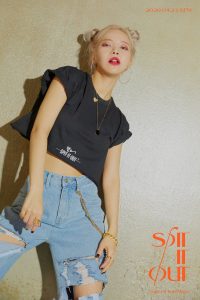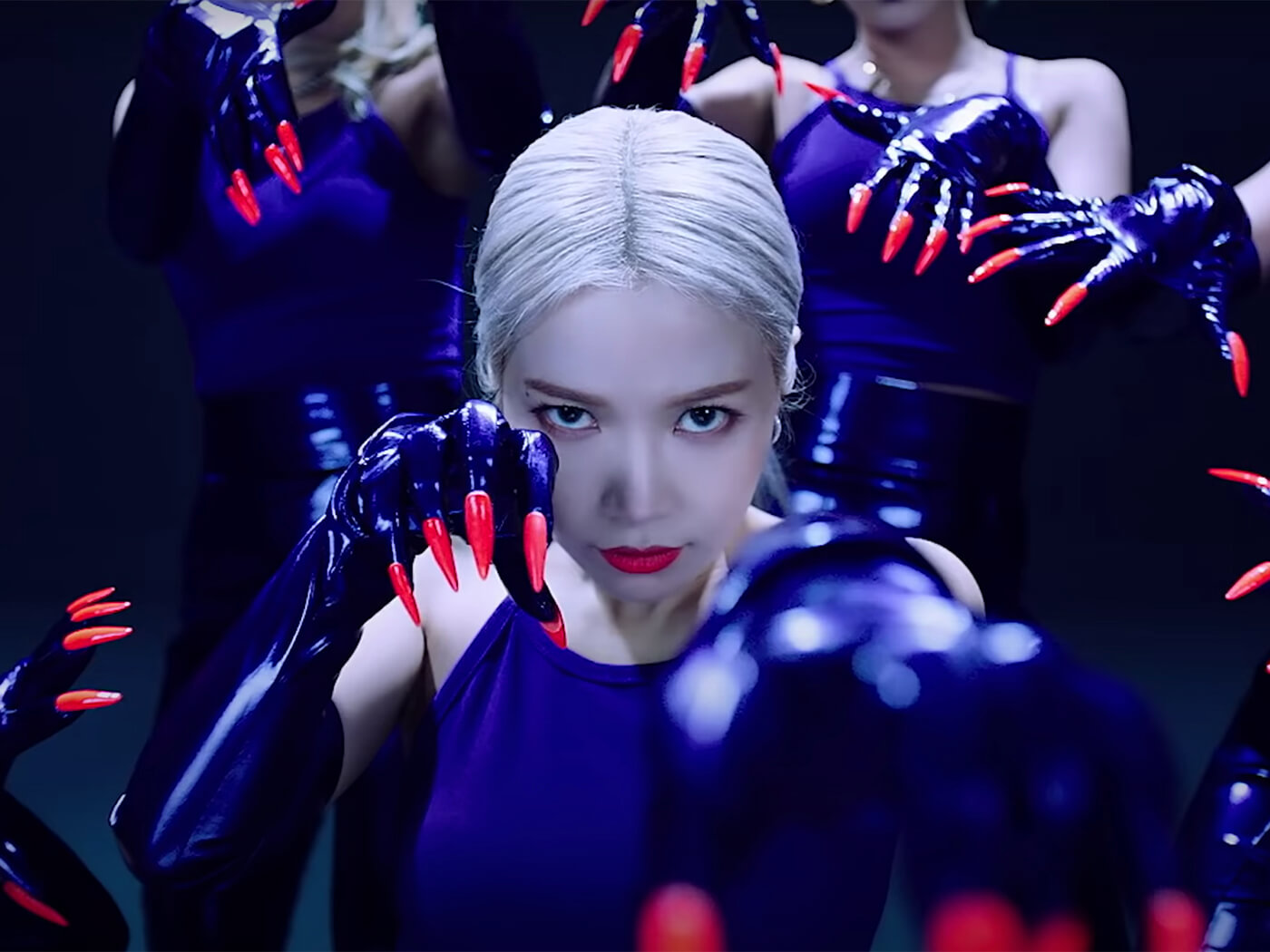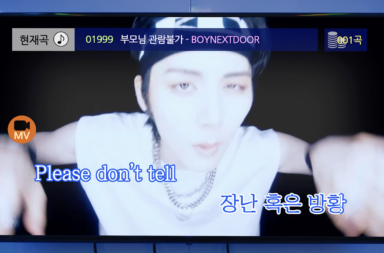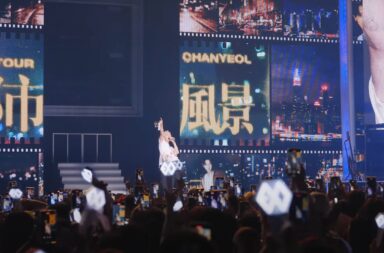
With Solar’s April release of “Spit it Out”, all four Mamamoo members have made an official solo debut. At first glance, these solo efforts appear largely successful, topping charts, earning wins on music shows, and attracting considerable attention to the members and group. However, on closer examination, Mamamoo’s solos have failed in a major way by not allowing the members to experiment or grow as individual artists.
The solo debut of a K-pop group member is not a novel occurrence, particularly in recent years, which have seen idol soloists rise in number and prominence. There are many strong motivations for companies to give group members solos. For a group that has yet to find success, solos can be a cost-effective way to maintain a public presence while possibly attracting new fans. With established groups, solos allow companies to fully capitalize on a group’s popularity during their frequently limited lifespan.

Artistically, most solos prioritize experimentation and individuality. The goal is for the idol to establish a unique solo identity, separate from their group. This allows the soloist to tap into markets their group doesn’t reach, and when executed successfully, can open the door to an enduring individual career. The two most frequent methods of doing this are to lean into an idol’s strengths, or to have an idol take on a musical style or aesthetic that is notably different from their group’s. Idols who pursue the first strategy often have an acknowledged musical strong suit. SNSD’s Taeyeon achieved her place as one of K-pop’s most recognized and respected soloists by taking her vocal abilities to new levels with songs like “I” and “Something New”. BTS’s Suga also leans into his talents as a rapper, songwriter, and producer in his diverse solo endeavors.
An example of the second method is Shinee’s Taemin. By embracing an unexpectedly edgy and sensual solo concept, Taemin was able to shed his image as his group’s cute baby maknae with a bowl haircut. He is now as known for his solo endeavors as he is for his work with Shinee. Sunmi likewise pursued a different concept from her then-group Wonder Girls in her solo debut, with the mature and sexy “24 Hours”. Sunmi’s career also demonstrates the usefulness of debuting a promising soloist while they are still a member of a popular group. Wonder Girl’s recognition undoubtedly created greater interest in her solo efforts, not only making her early solo songs a success, but laying the foundation from which she would launch her extremely successful solo career following Wonder Girl’s disbandment and her departure from JYP Entertainment.

The Mamamoo members show potential for both strategies. The group as a whole is known for their powerhouse vocals, but Solar and Wheein in particular are gifted singers who could unleash their voices in new and exciting ways through solo work. All the members have hinted at sides which have gone largely unexplored in Mamamoo’s discography, but which could be the starting point of a refreshingly unexpected solo endeavor, like Solar’s flirty section of the group’s Queendom stage of “Good Luck” and the delicately emotive vocals Hwasa has shown in certain ballad performances.
However, Mamamoo’s solos have pursued none of these promising paths, instead taking the unusual approach of operating almost entirely within the group’s concept and reinforcing, rather than breaking away from or expanding, each member’s role in the group. Hwasa’s “Twit” showcases the same cool-girl attitude she flaunts in Mamamoo’s releases. Solar and Wheein sing and sing well in their solo efforts, but no better and no differently than they do in the group’s songs. Moonbyul, who is Mamamoo’s main rapper, but also an accomplished vocalist and dancer, is still largely confined to rap-focused solo music.
This strategy has resulted in solos that feel like an extension of the group’s discography rather than standalone musical efforts. The twangy Western sound of Mamamoo’s “Destiny” continues in Solar’s “Spit it Out”, and the unorthodox styling from Hwasa’s “Twit” returned during Mamamoo’s “Hip” promotions. It all seems a bit lackluster, a wasted opportunity for artistic experimentation and individual development. So why has Mamamoo’s company, RBW Entertainment, chosen this unique approach to solos?

The answer may lie in an experimental endeavor RBW Entertainment undertook: a group concept change. In 2018 and 2019, the years in which the majority of the members’ solo debuts occurred, Mamamoo was in the midst of navigating the always-delicate process of shifting their musical, visual, and conceptual style. When they debuted in 2014 with “Mr. Ambiguous”, Mamamoo had an appealingly retro-influenced sound that was accompanied by a cute, often humorous image. They stuck to this concept fairly consistently for several years, until 2016’s “Decalcomanie” signaled an attempt to shift to a more contemporary musical style and a tougher, sultrier vibe.
That change kicked into high gear with Mamamoo’s “4 Seasons, 4 Colors” project, a series of EPs that were released between Spring 2018 and Spring 2019 and included the title tracks “Starry Night”, “Egotistic”, “Wind Flower”, and “Gogobebe”. Each EP also featured a solo song from a member, most notably “Selfish”, which would eventually be promoted as Moonbyul’s official solo debut. By the end of the project, Mamamoo had cemented their new identity as a thoroughly modern girl group with a trendy sound and a confident, sexy, and cool image.

In the context of this musical and aesthetic evolution, Mamamoo’s solos begin to make sense as strategic efforts meant to aid the group’s concept change, rather than provide opportunities for individual members to shine. Moonbyul’s “Selfish”, a bright and cheerful song featuring Red Velvet’s Seulgi, can be seen as an attempt to reassure fans that Mamamoo hadn’t abandoned their previously trademark light-hearted charm. Wheein’s “Goodbye” may have been meant to remind listeners that whether cutely crooning or fiercely growling, Mamamoo remained a group of talented vocalists who could be relied on for moving ballads. All the other solos, from Solar’s sassy “Spit it Out” to Wheein’s groovy kiss-off “Easy” featuring Sik-K, come off as clear efforts to further and promote the group’s new concept.
If RBW Entertainment’s intention was truly to use the Mamamoo members’ solos as tools to assist in the group’s concept shift and hammer home their new image, the persistence of similar musical stylings between group and solo releases, and the consistency in the members’ individual images, is logical. It was also effective in the sense that Mamamoo successfully executed their concept change, a shift that has led them into an era of impressive and still-growing popularity.

However, that doesn’t change the fact that Mamamoo’s solos have failed to provide the members with opportunities to establish unique individual artistic identities, rendering them ineffectual as potential starting points for long-term solo careers. Perhaps even worse, by curtailing experimentation and having each member stick to a narrow musical and performative style, the solos threaten to cause artistic stagnation. This could prevent the members from fulfilling their full potential as artists, and even possibly weaken their existing skills and charms through repetition.
There are signs of progress in the members’ follow-ups to their debut solo activities. Wheein’s “Goodbye” may be unremarkable musically, but its MV is pleasantly innovative, telling a thoughtful story that includes a nuanced representation of the LGBTQ+ community. Hwasa’s digital single in collaboration with Woogie, “In the Fall”, is a softly emotive song that showcases a fresh side to her vocal abilities. Most exciting of all is Moonbyul’s second solo comeback, the EP Dark Side of the Moon, with the title track “Eclipse”. It is by far the most experimental and individualized of Mamamoo’s solo efforts to date. The almost fantastical visual and lyrical content of “Eclipse” is a true departure from the group’s image and an effective milieu for showcasing Moonbyul’s dance abilities and formidable stage presence. RBW Entertainment recently announced that a repackage of this EP will be released on May 29, potentially further showcasing Moonbyul’s thrilling new aesthetic.
Mamamoo is a group full of talented members with great potential as soloists. However, due to the prioritization of group identity over individuality in their solo releases, the members have yet to truly shine on their own. Here’s hoping that future solo endeavors will highlight each member’s unique strengths and provide opportunities for them to experiment and evolve as individual artists.
(Naver, Twitter, YouTube [1][2][3][4]. Images via RBW Entertainment and SM Entertainment.)



